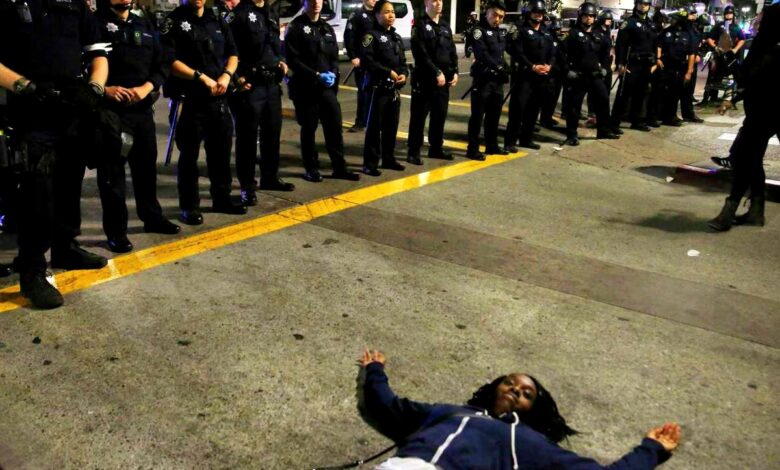Police Brutality in California: What Are Your Legal Rights?
This article explores in detail what constitutes police brutality in California., your legal rights under California and federal law.

Police brutality is a deeply concerning issue across the United States, with California being no exception. Cases of excessive force, wrongful arrests, racial profiling, and other forms of police misconduct have raised serious questions about the abuse of power and the accountability of law enforcement. Understanding your legal rights is essential to protecting yourself and seeking justice if you or someone you know becomes a victim of police brutality in California.
This article explores in detail what constitutes police brutality, your legal rights under California and federal law, how to report abuse, and how to seek compensation or justice. Whether you are a victim or an advocate, knowing your rights is the first step toward creating a safer and more just society.
What is Police Brutality?
Police brutality refers to the excessive or unnecessary use of force by law enforcement officers against civilians. While police are permitted to use reasonable force to maintain order and ensure public safety, any use of force beyond what is necessary under the circumstances may constitute brutality.
Examples of police brutality include:
- Physical assault (e.g., beating, choking, or using batons)
- Unjustified use of firearms or tasers
- Racial profiling and discriminatory practices
- Verbal abuse or threats
- Denial of medical care while in custody
- False arrests or illegal detentions
The rise in smartphone footage, body cameras, and social media has brought increased attention to incidents of police brutality in California and across the country.
Your Legal Rights Under California Law
If you experience police brutality in California, you are protected by a combination of state and federal laws that aim to ensure justice and accountability. Here are your core rights:
1. Right to Be Free from Unreasonable Searches and Seizures
Under the Fourth Amendment to the U.S. Constitution, individuals have the right to be free from unreasonable searches and seizures. This means that law enforcement officers cannot stop, search, or detain you without a valid reason or probable cause. Unlawful stops and arrests may constitute a violation of your civil rights.
2. Right to Remain Silent and Have Legal Representation
Thanks to the Fifth and Sixth Amendments, you have the right to remain silent and the right to an attorney. If you are taken into custody, you do not have to answer questions without your lawyer present. Invoking these rights can protect you from self-incrimination and abusive interrogations.
3. Right to Be Free from Excessive Force
California law explicitly prohibits law enforcement officers from using more force than necessary. The California Penal Code and other state laws reinforce this right, emphasizing that officers must use de-escalation techniques and proportional force.
4. Right to Record Public Officials
In California, it is legal to record police officers in public as long as you do not interfere with their duties. This right is protected under the First Amendment and can be crucial in documenting instances of police misconduct or brutality.
Steps to Take If You Experience Police Brutality in California
Knowing what to do immediately after experiencing police brutality can significantly impact your ability to hold law enforcement accountable.
1. Seek Medical Attention Immediately
Your health should be your top priority. If you have been injured, get medical help as soon as possible. Medical records can serve as critical evidence later on.
2. Document Everything
- Write down everything you remember about the incident, including time, location, badge numbers, and names of the officers involved.
- Gather witness statements and contact information.
- Take photos of injuries and any damage.
- Secure any available video footage.
3. File a Complaint with the Police Department
Most California police departments have an internal affairs division or civilian oversight board that handles complaints against officers. Filing a complaint creates an official record of the incident.
4. Contact a Civil Rights Attorney
An experienced attorney can help you understand your options and file a lawsuit, if appropriate. Legal representation is vital when navigating complex claims of police brutality.
Legal Remedies and Compensation
Victims of police brutality in California may be entitled to compensation and other forms of relief. Legal action can be pursued through civil litigation and, in some cases, criminal charges against the offending officer.
1. Filing a Civil Lawsuit (Section 1983 Claim)
Under 42 U.S. Code § 1983, individuals can file a lawsuit against government officials, including police officers, for violations of constitutional rights. These claims can result in compensation for:
- Medical expenses
- Lost wages
- Pain and suffering
- Emotional distress
- Punitive damages
2. California Tort Claims Act (CTCA)
Before suing a government agency in California, you must file a claim under the California Tort Claims Act. This must be done within six months of the incident. The CTCA covers claims of personal injury, wrongful death, and property damage caused by public employees.
3. Criminal Prosecution of Officers
In egregious cases, officers may face criminal charges. These charges are typically brought by the district attorney’s office and can result in jail time, fines, or termination.
Challenges in Proving Police Brutality
Despite legal protections, proving police brutality in California can be difficult. Law enforcement officers are often given the benefit of the doubt in use-of-force cases, and qualified immunity can shield them from liability.
Challenges include:
- Lack of witnesses or video evidence
- Conflicting police reports
- Institutional bias during internal investigations
- Delayed or incomplete responses to public records requests
This is why thorough documentation and legal support are crucial.
Notable Cases of Police Brutality in California
Several high-profile incidents have highlighted the need for systemic change in California law enforcement:
- Oscar Grant (2009): Fatally shot by a BART officer in Oakland; the case resulted in national protests and criminal charges against the officer.
- Mario Woods (2015): Shot by San Francisco police; sparked community outrage and a federal investigation.
- Stephon Clark (2018): Shot in Sacramento while holding a cell phone; raised concerns about racial profiling and excessive force.
These cases underscore the importance of transparency, accountability, and reform.
Police Reforms and Legislative Efforts in California
California has implemented several reforms aimed at curbing police brutality and increasing accountability:
- AB 392 (Use of Force Law): Narrows the circumstances under which police can use deadly force.
- SB 1421: Increases public access to police misconduct records.
- AB 1506: Requires the state attorney general to investigate police shootings of unarmed civilians.
- Body Cameras: Many departments are now required to equip officers with body-worn cameras to provide objective records of interactions.
While these measures are steps in the right direction, continued advocacy and oversight are essential.
Final Thoughts: Know Your Rights and Take Action
Police brutality in California remains a critical issue that affects communities across the state. Understanding your rights and how to assert them is essential to protecting yourself and your community. Whether you are filing a complaint, pursuing legal action, or documenting abuse, your voice matters.
If you or a loved one has been affected by police brutality in California, consult a civil rights attorney as soon as possible. Timely action can make all the difference in achieving justice and holding law enforcement accountable.
By staying informed and empowered, we can work together to ensure that justice, fairness, and accountability are not just ideals, but realities for every Californian.











